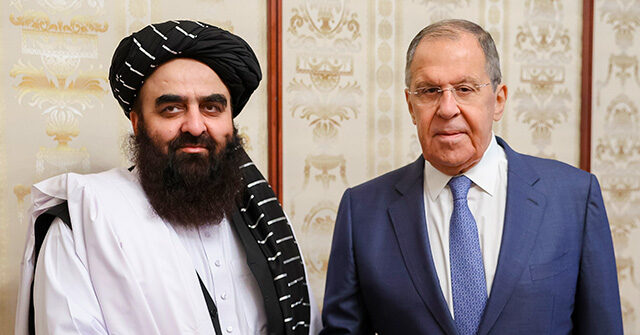The Russian Foreign Ministry has announced a significant shift in its foreign policy regarding the Taliban, declaring that a decision has been made “at the highest level” to remove the group from its list of terrorist organizations. This marks a notable change since the Taliban was designated as a terrorist entity in 2003, particularly due to its support for separatists in the North Caucasus region. Russia’s apprehensions about the influence of the Taliban were evident even in 2021, when the fallout from President Biden’s withdrawal from Afghanistan raised fears that North Caucasian militants could draw inspiration from the Taliban’s resurgence. However, Moscow appears to be setting aside those longstanding concerns as it seeks to foster new political and economic ties with the current Taliban regime in Kabul.
Zamir Kabulov, President Putin’s envoy to Afghanistan, has publicly suggested that the relationship with the Taliban has matured sufficiently to warrant their removal from the list of terrorist organizations. He noted that while there are still some “hurdles” to address before this can happen, he refrained from detailing what these challenges might be. This sentiment is echoed by Russian Foreign Minister Sergey Lavrov, who emphasized that the Taliban is now the “real power” in Afghanistan, thus justifying the decision to delist them. Lavrov’s commentary illustrates a pragmatic shift in Russian foreign policy, highlighting an acknowledgment that engaging with the Taliban is essential for addressing Afghanistan’s ongoing issues and regional stability.
During a recent Russian-led diplomatic forum on Afghanistan, Lavrov took the opportunity to call on Western nations to reconsider their stance on the Taliban. He urged them to lift sanctions, return confiscated Afghan assets, and accept their role in the country’s reconstruction efforts following years of conflict. Lavrov stressed that any attempt to resolve Afghanistan’s multifaceted problems must include the Taliban government, underscoring the necessity of involving Kabul in any discussions about the nation’s future. He also commended the Taliban for their efforts to diminish opium production and combat the Islamic State, actions that present the group in a more favorable light to the international community.
At the same diplomacy forum, Afghan Foreign Minister Amir Khan Muttaqi expressed gratitude for the growing acceptance of the Taliban on a regional level. He specifically thanked Kazakhstan and Kyrgyzstan for removing the Taliban from their terrorist lists and appreciated the favorable comments from Russian officials. This indicates a potential regional realignment where neighboring countries aim to engage more constructively with the Taliban, moving beyond their previous designations, which characterized the group as purely a terrorist organization. The cooperative atmosphere of the event signifies a shift towards normalization and recognition of the Taliban’s governance in Afghanistan.
Despite the optimistic rhetoric from both Russian officials and Taliban representatives, Kabulov reiterated that a complete delisting still hinges on overcoming specific procedural obstacles. However, he did not provide a definitive timeline for when these issues would be resolved. This lack of clarity introduces an element of uncertainty regarding the actual pace of rapprochement and formal recognition that the Taliban seeks from Russia and, by extension, from other nations. The delicate nature of international diplomacy surrounding Afghanistan poses challenges, highlighting the need for ongoing negotiations and dialogue to address outstanding concerns while fostering new alliances.
In summary, Russia’s move to reconsider the Taliban’s designation as a terrorist organization signifies a strategic pivot, aiming to establish stronger ties with Afghanistan’s current administration. This reflects a broader understanding among global powers that engaging with the Taliban is crucial for regional stability and addressing humanitarian concerns post-conflict. As discussions continue around lifting sanctions and incorporating the Taliban into international frameworks, the complexity of Afghanistan’s situation remains a pivotal issue, with implications not only for Russia but also for the wider international community navigating this evolving geopolitical landscape.

